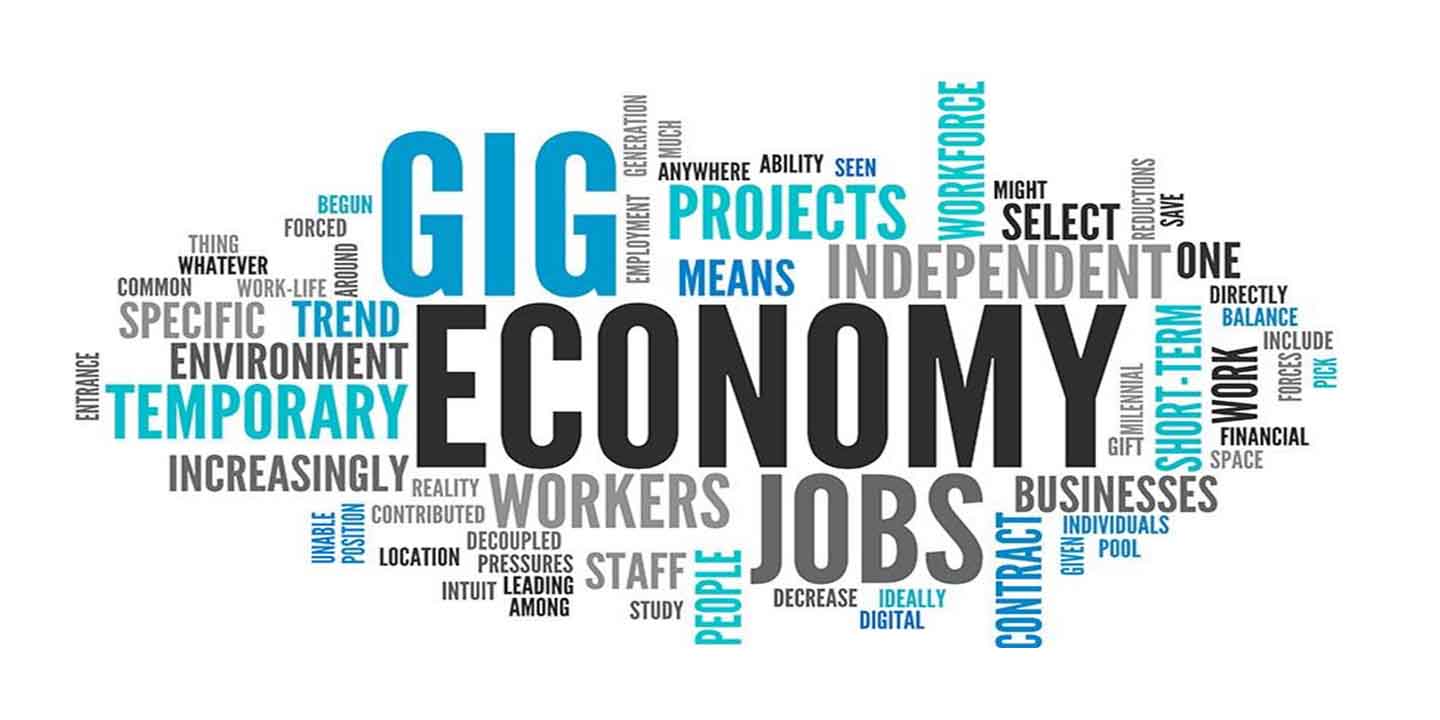TYPE
Rise of the Gig Economy ??
The term "gig" is a slang word for a job that lasts a specified period; it is typically used by musicians.
A gig economy is a market system in which temporary positions are common and organizations hire on-demand independent workers for short-term commitments.
Gig Economy has evolved over the time. From sharing economy, to collaborative economy and then to Gig Economy.
Growth
Millions of people across the globe, have left the relatively stable confines of organizational life — sometimes by choice, sometimes not — to work as independent contractors.
What do delivery couriers, Uber drivers and Swiggy riders have in common? They are all part of the gig economy (sharing economy in the past). Some of this growth reflects the high acceptance of workers to engage with task-oriented service platforms.
With downsizing due to COVID & WFH implemented across organisations, knowledge-intensive industries and creative occupations are the largest and fastest-growing segments of the freelance economy. Employees have found new ways to channelise time, talent and generate income while remaining flexible.
Thus the growth enablers (tailwind) for Gig Economy have been:
- Acceptance to and channelising energies in the work from home environment
- Downsizing & restructuring of roles & responsibilities in the corporates due to COVID
- Ease and economy in communication due to reducing cost and growing penetration of smartphones and internet
Start-ups Opportunity
With internet becoming cheaper alongside the penetration of smartphones on a rise, the opportunity for start-ups has opened.
Business Models are evolving, providing host of services to freelancers, in setting up their ventures with greater ease and economy.
These start-ups act as one stop shop when it comes to:
- Creating professional profiles
- Managing engagements
- Payment Gateway
- Communication tools with analytics
Automation, analytics clubbed with ease of use and end to end solution is giving rise to new businesses and enabling professionals in targeting, re-targeting and selling services. The similar acceptance from the user is creating a new market for information workers.
Impact
Studies acknowledge that the gig workers felt a host of personal, social, and economic anxieties without the cover and support of a traditional employer but also claimed that the independence was a choice and had greater benefits. Although worries pertain about unpredictable schedules and finances, but besides independence probability of leading richer lives than their corporate counterparts seemed higher.
Socio Political Impact
The rise in the gig economy workforce have led to new labour laws to safeguard and promote their interest.
Investors’ Lens
This opportunity, enabling workforce to earn more while being flexible can see tremendous organic traction. But, given the nature of new product and new market it is crucial for investors to tread cautiously and maintain healthy risk return trade-off.
Many come and go before the product is developed to be able to retain, scale and grow.
Lastly, the culture may seem adaptive, but the reality and sustainability will unveil only after the macro environment restores and people continue to prefer gig workstyle over the traditional permanent stature.
Example: The case of Webinars, at the onset of COVID, a huge rush was observed with people attending numerous webinars and online workshop but with the passing time the rush seemed to fizzle out.
The same implies for gig workers, with reduced travel time and outdoor engagements, the workforce finds gig work lucrative but will the same sustain in the long run or is it just a bubble!!!!

 SUBSCRIBE
SUBSCRIBE
